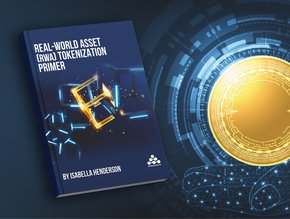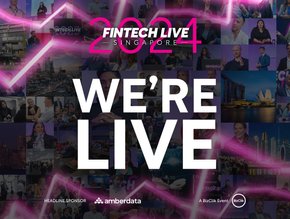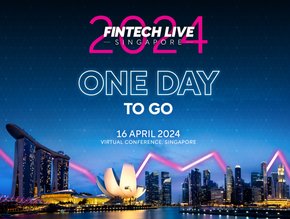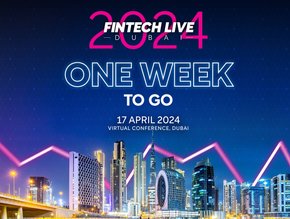IoT: changing payments, society and the customer experience

Speaking with experts from Deloitte, Broadridge FS, Infinity Works and Crown Agents Bank, we discover the broad changes in fintech being facilitated by IoT
The proliferation of connected devices across so many aspects of our lives made it practically inevitable that finance would one day capitalise on their availability. Using modern smart and IoT (internet of things) devices, fintech has opened the possibilities of integrating products and services with customers’ daily lives, enabling greater overall engagement, convenience and allowing businesses to meet the needs of unmet communities. Effectively dissolving ‘office hours’ and facilitating automated ‘round-the-clock service, customers can now receive a faster and more personalised experience, with the enterprise benefits of increased operational efficiency and easy scalability, as well as mutually beneficial augmented cybersecurity.
Changing the customer experience
It was, perhaps, the early innovations observed in insurtech and proptech that awakened the broader fintech sector to the possibilities of IoT. Michael Tae, Head of Strategy, Broadridge Financial Solutions, says, “While financial services firms have been deriving insights from customer data for quite a while, the nature of IoT is that it’s always on and allows for the collection of data from users’ daily lives.” Jim Eckenrode, Managing Director of Deloitte’s Center for Financial Services, adds: “Using sensor data to adjust insurance premiums, control building temperature, and facilitate contactless payments are all examples of the possibilities.” Indeed, because of the exploratory and - to date - relatively unconstrained regulatory frameworks that the tech sector operates in, progress has been able to be made swiftly.
IoT’s capacity to elevate the customer experience can be broadly summarised into three key aspects:
- Real-time data gathering
- 24/7 connection to the service provider via a device
- Personalisation and customisation of service
Richard Poole, Principal Consultant at Infinity Works, relates an personal account of his own experience to outline the difference that IoT/connected devices have had on payments: “Some years ago, I decided to try out one of the neobank offerings. One of the first things I did was to play around with the bank's integrated payment notifications. I created an event for a merchant payment from our joint bank account (my partner's hairdresser) so that I’d receive a mobile notification to my device reminding me to comment on the hair cut. Furthermore, I was able to make sure the payment came from a designated virtual pot and then logged on a Google sheet.”
Applications
As demonstrated by Poole, this direct communication and sense of ‘fun’ is something that was totally foreign from traditional, paper-based interactions between customers and service providers. As such, the ability for modern fintechs to create engaged and genuinely enthusiastic communities has never been readily more available. The finance industry appears to be aware of this fact; Eckenrode’s research article, ‘The derivative effect: How financial services can make IoT technology pay off’, found that sensor device installation has experienced between 20% and 100% compound annual growth among banks, capital markets, investment managers and more. A survey conducted by Deloitte in the summer of 2020, he tells us, found that COVID-19 had only served to broaden IoT’s appeal.
Poole adds that Infinity Works has been collaborating with Starling Bank to develop the latter’s use of IoT, “We’ve primarily worked with challenger banks to build a flexible, secure and scalable set of services that allow for innovative uses.” However, even from a non-challenger bank perspective, Marshall makes it clear that CAB has been pursuing greater connectivity both for its security and developmental capacities. “One of the most exciting is our move into biometric payments and security with our new partner, Paycode. Its technology directly addresses the connectivity challenges in Africa and other emerging markets: our goal is to reach 100 million financially excluded individuals in rural Africa and beyond by 2025; making sure that those in remote areas can still access financial services is key to our mission.”
Transformative potential
For Marshall, financial inclusion through IoT, available both offline and online, signifies the technology’s most transformative potential in modern fintech. However, Eckenrode and Poole contend that it is in the payments sphere where connected devices truly excel. “Payments may be an area particularly ripe for transformation through IoT. Contactless payments have seen a significant uptake during the pandemic and integrated functionality in connected devices for ‘on-the-go’ payment capabilities will likely accelerate,” suggests Eckenrode.
Other commentators consider the specifics of IoT’s transformative potential to be largely irrelevant; the important thing is that it aids decision-making broadly. “As IoT usage moves from repetitive automation to influencing true decisioning, it becomes more transformative,” states Tae. “So much of wealth managers’ ability to assist a client depends on their ability to understand them at a deeper level. By gathering data on client behaviour, interests, preferences, and more, a wealth manager will be able to tailor offerings with respect to risk tolerance.”
In addition to enhanced personalisation, another distinct benefit for payments is the increased ease with which transactions can be completed: “We are moving to a future where payments become so easy and convenient that most charges will be invisible at the point of sale,” says Poole. “In the short term, using radio-frequency identification (RFID) could result in seamless public transport payments. Amazon has gone a step further by combining QR codes, RFID and computer algorithms.” It should be noted that, in this instance, making payments as easy as possible for the customer takes strategic priority. “Amazon’s single click-to-buy innovation was a milestone in the digital space. It feels like a new one is just around the corner,” he adds.
Connected devices and IoT clearly have their benefits. However, they also entail a simultaneous increase in threats to cybersecurity. “Any increase in data points increases the challenge to keep that data secure,” states Marshall. Further integration of biometrics for first-line cybersecurity (for example, fingerprint scanners and facial recognition software) can alleviate the issue somewhat, although admittedly not entirely. In conjunction with this, fintech as a sector should take a leadership position in the ongoing conversation by championing Strong Customer Authentication (SCA). “It would be ideal for companies like Google and Apple to adopt SCA as part of a standard federated authentication. This would allow third parties to use SCA without the need for discrete deployments and help provide a standard multi-factor authentication for IoT platforms,” says Poole.
Solving this particular problem could ultimately decide IoT’s place in the broader fintech landscape. “Consumer privacy will be an important consideration as use of IoT data expands into financial services,” advocates Eckenrode. “At least at first, adoption will be slow given the fact that, by its very nature, IoT connects physical and digital worlds.” However, that necessary shift has been accelerated by the COVID-19 pandemic, which has placed a new importance on users’ ability to manage their finances through digital devices. Moreover, the move to a ‘cashless’ society, Marshall believes, is a positive development both for individuals and communities, “As digital payment methods evolve and the use of cash declines, there is likely to be an increase in transparency and a reduction in tax avoidance and theft.” As such, IoT has the ability to be a genuine power for good in society. As fintechs and banks continue to collaborate on the best way to acquire, secure and retain customer finances, we can be optimistic that everyone will benefit from a more connected experience.
Meet our experts
Jim Eckenrode, Managing Director of the Centre for Financial Services (DCFS), Deloitte
Part of the firm’s US Financial Services industry team, DCFS is a source of up-to-the-minute insights on the most important issues facing senior-level decision-makers in the industry.
Steven Marshall, Chief Commercial Officer, Crown Agents Bank
“I’ve been working in banking and fintech for the past 20 years, focused on emerging and frontier markets, with previous experience at Standard Chartered, Barclays and The United Nations Migration Agency,” he explains.
“I’ve been with CAB since 2016 and my role has evolved since I started - from Head of Payments and Cash Management to now sitting on the Executive Committee. I’m responsible for the bank’s commercial strategy and development, leading the team in creating our next generation payment capabilities.”
Richard Poole, Principal Consultant, Infinity Works
“I’m a principal consultant at Infinity Works, specialising in helping businesses transform and modernise their digital customer platforms and experiences. Prior to joining Infinity Works in 2018, I worked in the financial services sector for more than 20 years.”
Michael Tae, Head of Strategy, Broadridge Financial Solutions
“I joined Broadridge in 2017 and currently lead Broadridge’s Corporate Strategy function. This includes work around M&A, investments, partnerships, strategic planning, and supporting growth initiatives across our business lines.”






